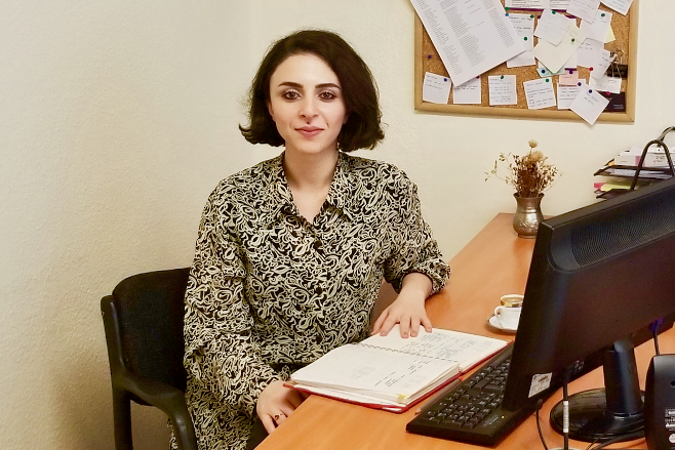Take five: “Many women don’t have adequate information on their legal rights”
Date:

Sibel Güneş Ergün is a feminist activist, who has been working on gender equality and human rights in Ankara, Turkey since 2010. Currently, she is coordinating a project to strengthen the representation of women survivors of violence in the justice system at the Capacity Development Association (KAGED), as part of the regional programme, ‘Implementing Norms, Changing Minds’.
Few women survivors of violence seek legal services. Why do you think this is the case?
According to the Domestic Violence Against Women in Turkey Research Report (2014), violence against women is still widespread. Yet, only 11 per cent of the women who experience violence apply to an institution for support. When they do apply, women often experience long and exhausting procedures and secondary trauma, because of highly bureaucratic practices and the low level of gender awareness in public institutions.
Many women do not have accurate or adequate information on their legal rights and legal mechanisms. Even when they do, we know that it can be very difficult for women to persevere through to the end of the legal process. Most women are unable to apply for assistance when violence occurs because the mechanisms are inaccessible, unreliable, slow and ineffective.
Legal support is a crucial first step in women’s access to justice; lawyers, however, are generally not well-informed about national and international legislation on violence against women.
What should be done to improve access and the overall quality of legal services offered to women survivors of violence in Turkey?
Gender-based violence is a social crisis – in terms of both its scale and impact – that requires urgent and effective measures. It is very important for public institutions and service providers to raise awareness of gender inequality and violence against women. Service provision needs to be based on a comprehensive understanding of women's rights, needs and priorities. Therefore, in addition to widening the scope of the services offered to women, it is also essential to improve the quality of these services. For this to be effective, we need to provide support mechanisms that consider incidents of violence against women not only in terms of criminal cases.
How do you see the role of international instruments, such as the Istanbul Convention, in improving access to justice for women survivors of violence?
The Istanbul Convention is a pioneering text that details how laws and policies on violence against women should be adopted and implemented. It recognizes that an effective fight against violence can only be undertaken if all relevant public institutions, civil society and the private sector work together in coordination and with a strong determination to eliminate violence against women. The Convention argues that violence is linked to inequality and discrimination.
In your opinion, why is it important to have a gender perspective for the provision of legal services to women survivors of violence?
Prejudices stemming from gender inequality are among the most important de facto obstacles to women's access to justice. Interpretation and effective implementation of legislation require gender awareness. Otherwise, the judiciary mechanism, which thinks it treats everyone equally, may be discriminating against women. In addition, despite good legislation, bad practice affects women's trust in justice and prevents them from seeking their rights.
KAGED is working to increase the capacity of women’s lawyers to apply international legislation under the regional programme, ‘Implementing Norms, Changing Minds’. What would you like to achieve with this project?
The aim of this project is to increase the capacity of women’s lawyers to apply international legislation, enhance their ability to advocate, and improve their communication and cooperation skills, so as to strengthen and encourage access for women victims of violence to justice.
With the help of this project, women’s lawyers will gain a greater awareness of the relationship between gender, violence against women and the law, and improve their knowledge of and capacity to use the standards of CEDAW, the Istanbul Convention and the European Convention on Human Rights; thereby strenghtening the cases for women survivors of violence in court.